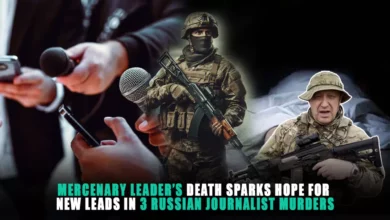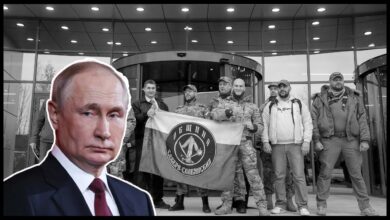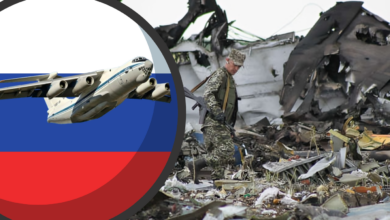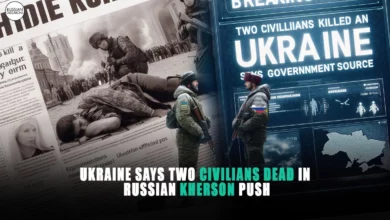Akunin Decries Russia’s Reality: Books Banned, Writers Accused of Terrorism
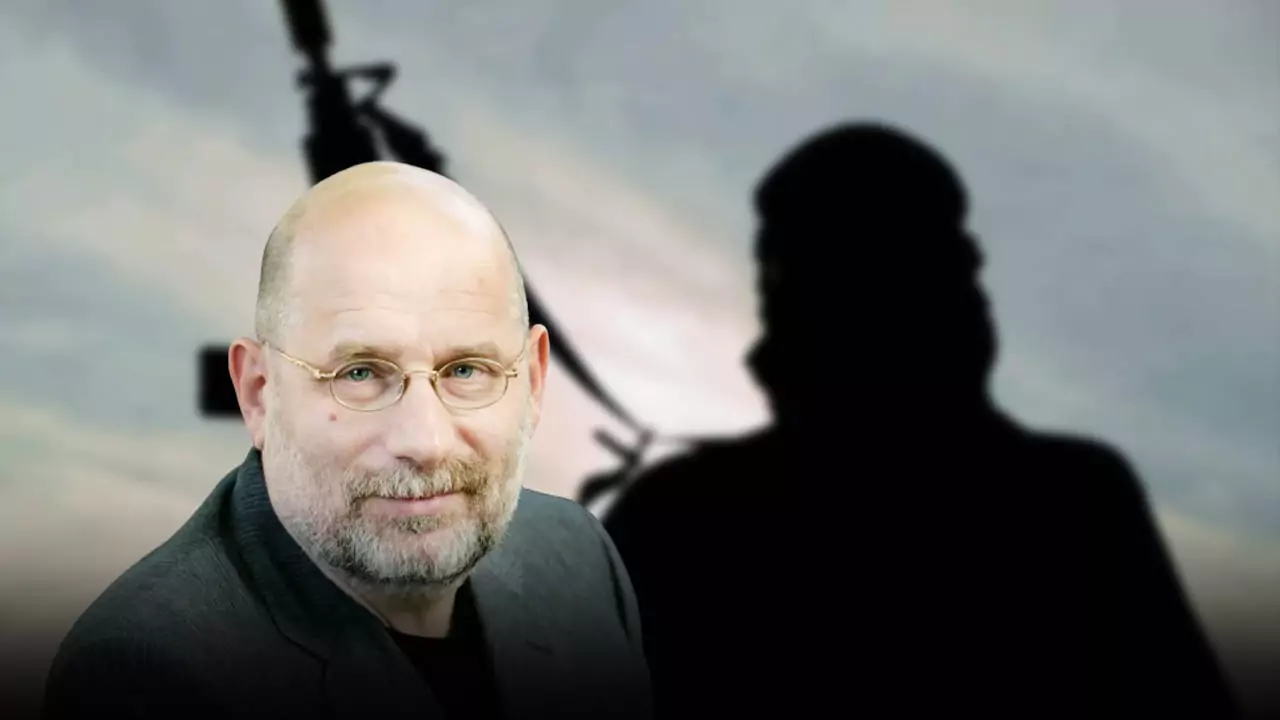
A Russian government agency that monitors financial transactions, Rosfinmonitoring, has controversially labeled renowned author Boris Akunin as an extremist and terrorist.
Allegations that Akunin spread misleading information about the Russian military’s involvement in the conflict in Ukraine are the reason for the action. Akunin is facing criminal charges for allegedly defaming the Russian armed forces. He is accused of spreading false narratives about the army.
The detective and historical fiction books that Akunin is most known for are his Erast Fandorin series. Additionally, he has written under the pen names Anna Borisova and Anatoly Brusnikin. He moved to Moscow in 1958 after being born in Georgia to a Jewish mother and a Georgian father. Later on, he resided in Spain, France, and Britain.
Akunin has expressed disapproval of the acts and policies of the Russian government, particularly in relation to Ukraine. He has backed the demonstrations against the results of the December 2020 parliamentary elections by the pro-democracy movement. Additionally, he urged President Vladimir Putin to end the conflict in Ukraine and uphold human rights in an open letter.
A troubling trend of designating dissenting voices as threats to national security is highlighted by Rosfinmonitoring’s unexpected classification. Rosfinmonitoring is typically tasked with monitoring financial activities related to terrorism and extremism.

According to critics, such actions threaten dissent and freedom of expression in Russia and raise issues regarding the relationship between political expression, literature, and state authority there.
He has become a well-known voice criticizing Russian government policies, especially those concerning Ukraine.
During the demonstrations in December 2020 against the results of the parliamentary election, his support for pro-democracy movements was clear. Akunin’s disapproval goes so far as to send an open letter to President Vladimir Putin directly, pleading for an end to the Ukrainian conflict and stressing the value of upholding human rights.
The author’s commitment to both creative expression and civic engagement is highlighted by his varied life, which includes multiple moves and a wide range of literary contributions.
But his recent designation by Rosfinmonitoring as an extremist and terrorist, along with a criminal case for allegedly defaming the Russian army, raises questions about the state of dissent and free speech in Russia. The complicated relationship that exists in modern Russian society between political activism, literature, and state power is reflected in Akunin’s journey.
There has been worldwide indignation among writers and intellectuals over the inclusion of Boris Akunin on the Russian terrorist list. Renowned writers JM Coetzee and Svetlana Alexievich, as well as other Nobel laureates, have appealed to Russian speakers all over the world.
They exhort people to use every channel at their disposal to inform their fellow citizens about the facts surrounding the conflict in Ukraine. These authors take the position that Akunin is a supporter of democracy and peace rather than a rival of Russia.
In order to combat narratives that could stifle the truth about geopolitical conflicts, the appeal emphasizes the need for open communication and presents a united front against the suppression of dissenting voices. The backing of such well-known individuals heightens awareness of the situation of free speech and human rights throughout the world in light of Akunin’s contentious classification.
RECENT UPDATES ON AKUNIN
The Russian government has added renowned detective novelist Grigory Chkhartishvili, who writes under the pen name Boris Akunin, to its list of “extremists and terrorists” because of his vocal opposition to Moscow’s war in Ukraine.
The action comes after a larger crackdown on dissent in Russia that specifically targeted writers and artists who were critical of the government and caused their works to vanish from neighborhood bookshops. Chkhartishvili, 67, is well-known for his historical detective books and has long been an opponent of Vladimir Putin.
On Monday, Akunin was formally added to the “terrorist and extremists” register by Rosfinmonitoring, Russia’s financial watchdog. The nation’s Investigative Committee simultaneously declared that he was the subject of a criminal investigation. Acknowledging Moscow’s military intervention in Ukraine, Akunin is accused of “justifying terrorism and publicly spreading fake information” about the Russian army.
The freedom of expression in Russia is seriously being undermined, especially for critical writers and artists who disagree with the government’s interpretation of geopolitical events. These people’s repression is a reflection of the nation’s regulatory agencies, which were employed to manage the discourse on divisive topics. Concerns have been raised by the literary world worldwide; Nobel laureates Svetlana Alexievich and J.M. Coetzee have backed Akunin as a champion of democracy and peace in the face of growing authoritarian actions.
This incident calls into question Russia’s human rights and artistic freedom, drawing attention from around the world to the effects it has on free speech and opposing viewpoints.

Russia’s largest publishing house, AST, has classified London-based writer Vladimir Akunin as a terrorist because of his “public statements.” Notwithstanding his differences with the Kremlin, Akunin is still a well-liked modern writer and was a founding member of the “True Russia” campaign, which helps Russians and Ukrainians who are fleeing their homeland.
He declared that a psychologically deranged dictator rules Russia, and he attacked both the country’s submission to this dictator’s paranoia and his rule over it.
Following the military operation by the Kremlin in Ukraine, many prominent figures in Russian culture have opted to leave the nation, and those who stay are subject to ever-tougher censorship regulations. The well-known novelist Boris Akunin addressed the accusations against him in a piece on his website, stressing the seriousness of the circumstances.
Akunin emphasized the importance of seemingly insignificant occurrences as critical turning points in Russia’s modern history, such as the outlawing of books and the labeling of a writer as a terrorist.
Though books had not been outlawed in Russia since the Soviet era and writers had not been accused of terrorism since the Great Terror, Akunin expressed concern in his reflection about the eroding of freedoms.
He described the current state of affairs as a harsh reality for Russia, stressing that it is a real and worrisome development with significant ramifications for the country’s cultural landscape and freedom of expression rather than just a pipe dream.




